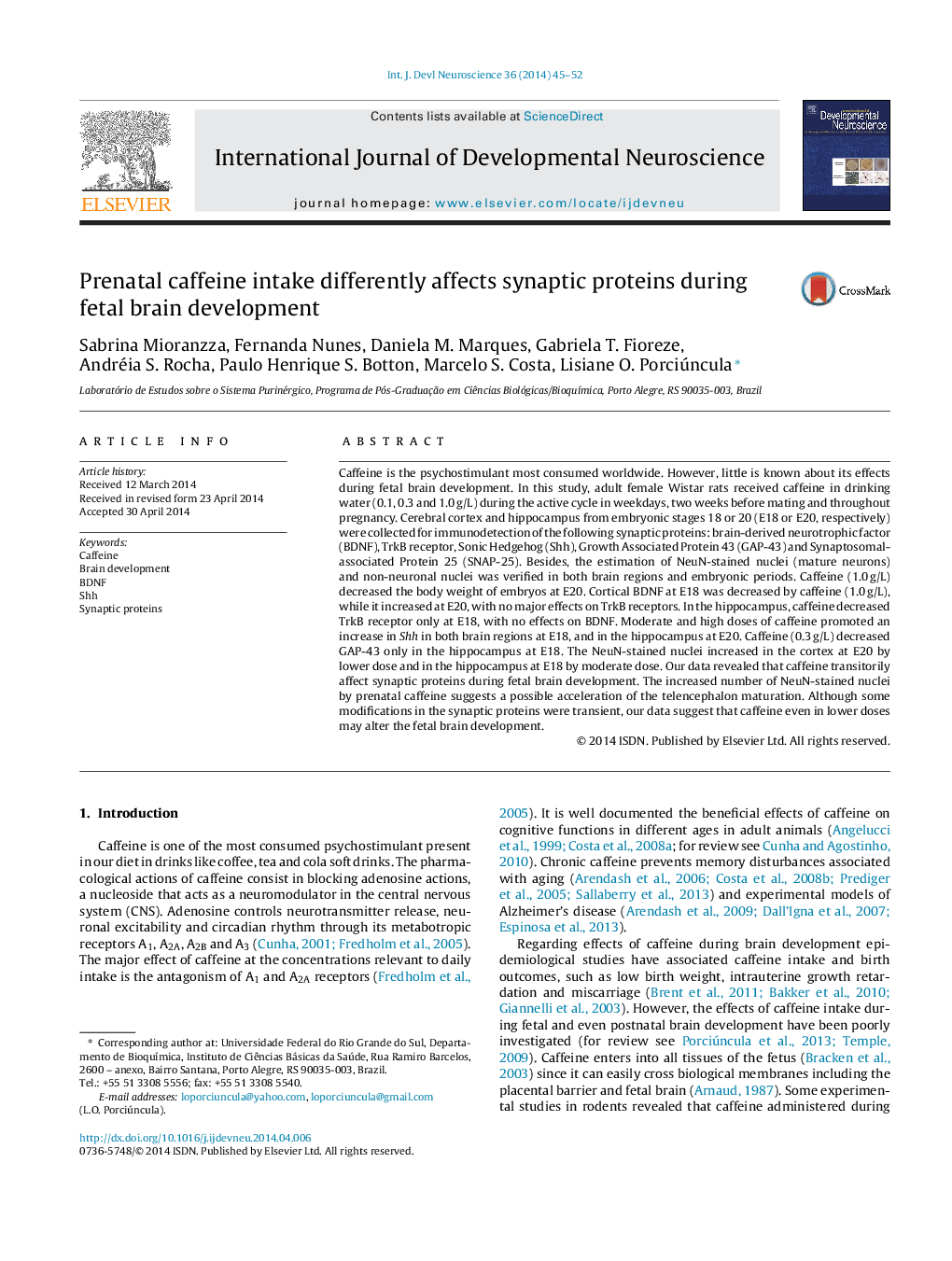| Article ID | Journal | Published Year | Pages | File Type |
|---|---|---|---|---|
| 2785907 | International Journal of Developmental Neuroscience | 2014 | 8 Pages |
•Effects of prenatal caffeine intake were investigated on synaptic proteins in the embryonic periods E18 and E20.•Body weight was decreased by higher caffeine in embryos E20.•Brain-derived neurotrophic factor (BDNF) was differently altered in the cortex at E18 and E20.•Sonic hedgehog (Shh) was increased by moderate and high doses of caffeine in the hippocampus and cortex.•Caffeine at lower dose increased NeuN-stained nuclei in the cortex at E20 and moderate dose in the hippocampus at E18.
Caffeine is the psychostimulant most consumed worldwide. However, little is known about its effects during fetal brain development. In this study, adult female Wistar rats received caffeine in drinking water (0.1, 0.3 and 1.0 g/L) during the active cycle in weekdays, two weeks before mating and throughout pregnancy. Cerebral cortex and hippocampus from embryonic stages 18 or 20 (E18 or E20, respectively) were collected for immunodetection of the following synaptic proteins: brain-derived neurotrophic factor (BDNF), TrkB receptor, Sonic Hedgehog (Shh), Growth Associated Protein 43 (GAP-43) and Synaptosomal-associated Protein 25 (SNAP-25). Besides, the estimation of NeuN-stained nuclei (mature neurons) and non-neuronal nuclei was verified in both brain regions and embryonic periods. Caffeine (1.0 g/L) decreased the body weight of embryos at E20. Cortical BDNF at E18 was decreased by caffeine (1.0 g/L), while it increased at E20, with no major effects on TrkB receptors. In the hippocampus, caffeine decreased TrkB receptor only at E18, with no effects on BDNF. Moderate and high doses of caffeine promoted an increase in Shh in both brain regions at E18, and in the hippocampus at E20. Caffeine (0.3 g/L) decreased GAP-43 only in the hippocampus at E18. The NeuN-stained nuclei increased in the cortex at E20 by lower dose and in the hippocampus at E18 by moderate dose. Our data revealed that caffeine transitorily affect synaptic proteins during fetal brain development. The increased number of NeuN-stained nuclei by prenatal caffeine suggests a possible acceleration of the telencephalon maturation. Although some modifications in the synaptic proteins were transient, our data suggest that caffeine even in lower doses may alter the fetal brain development.
